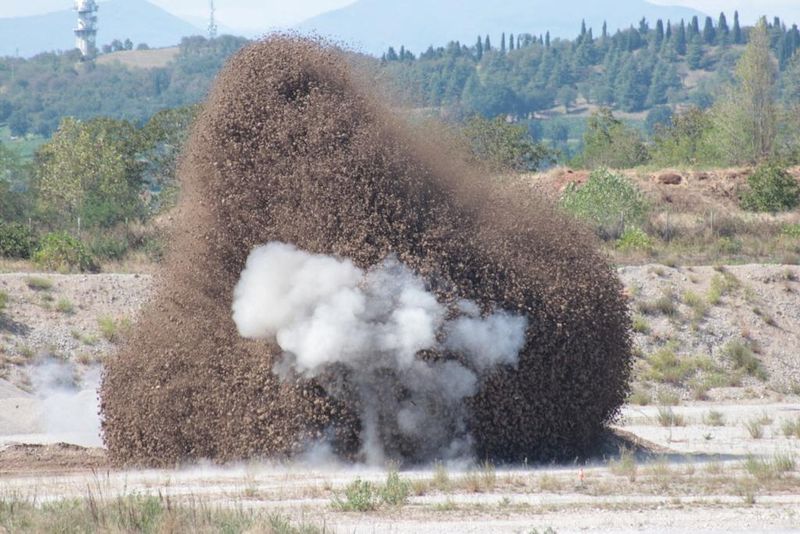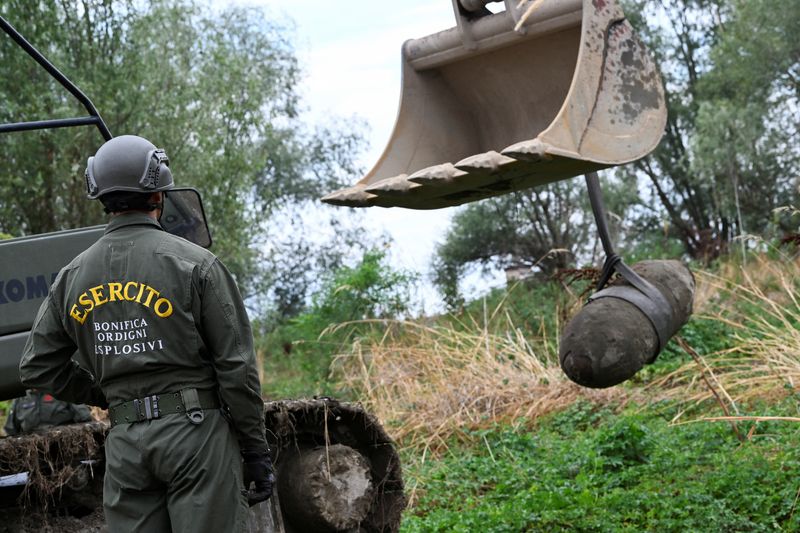By Oriana Boselli
BORGO VIRGILIO, Italy (Reuters) - Heatwaves sweeping Europe this summer have brought not just record high temperatures and scorched fields: the drought-stricken waters of Italy's River Po are running so low they revealed a previously submerged World War Two bomb.
Military experts defused and carried out a controlled explosion on Sunday of the 450-kg (1,000-pound) bomb, which was discovered on July 25 near the northern village of Borgo Virgilio, close to the city of Mantua.
"The bomb was found by fishermen on the bank of the River Po due to a decrease in water levels caused by drought," Colonel Marco Nasi said.
It was no easy task to clear the bomb.
About 3,000 people living nearby were evacuated for the disposal operation, the army said. The area's airspace was shut down, and navigation along that stretch of the waterway as well as traffic on a railway line and state road close by were halted.
"At first, some of the inhabitants said they would not move, but in the last few days, we think we have persuaded everyone," said Borgo Virgilio's mayor, Francesco Aporti, adding that if people had refused to go, operations would have been halted.
Bomb disposal engineers removed the fuse from the U.S.-manufactured device, which the army said contained 240 kg (530 pounds) of explosive.

Then the bomb squad, escorted by police, transferred the device to a quarry in Medole municipality about 45 km (30 miles) away, where it was destroyed.
Italy declared a state of emergency last month for areas surrounding the Po, which is the country's longest river. It accounts for roughly a third of Italy's agricultural production and is suffering its worst drought for 70 years.
